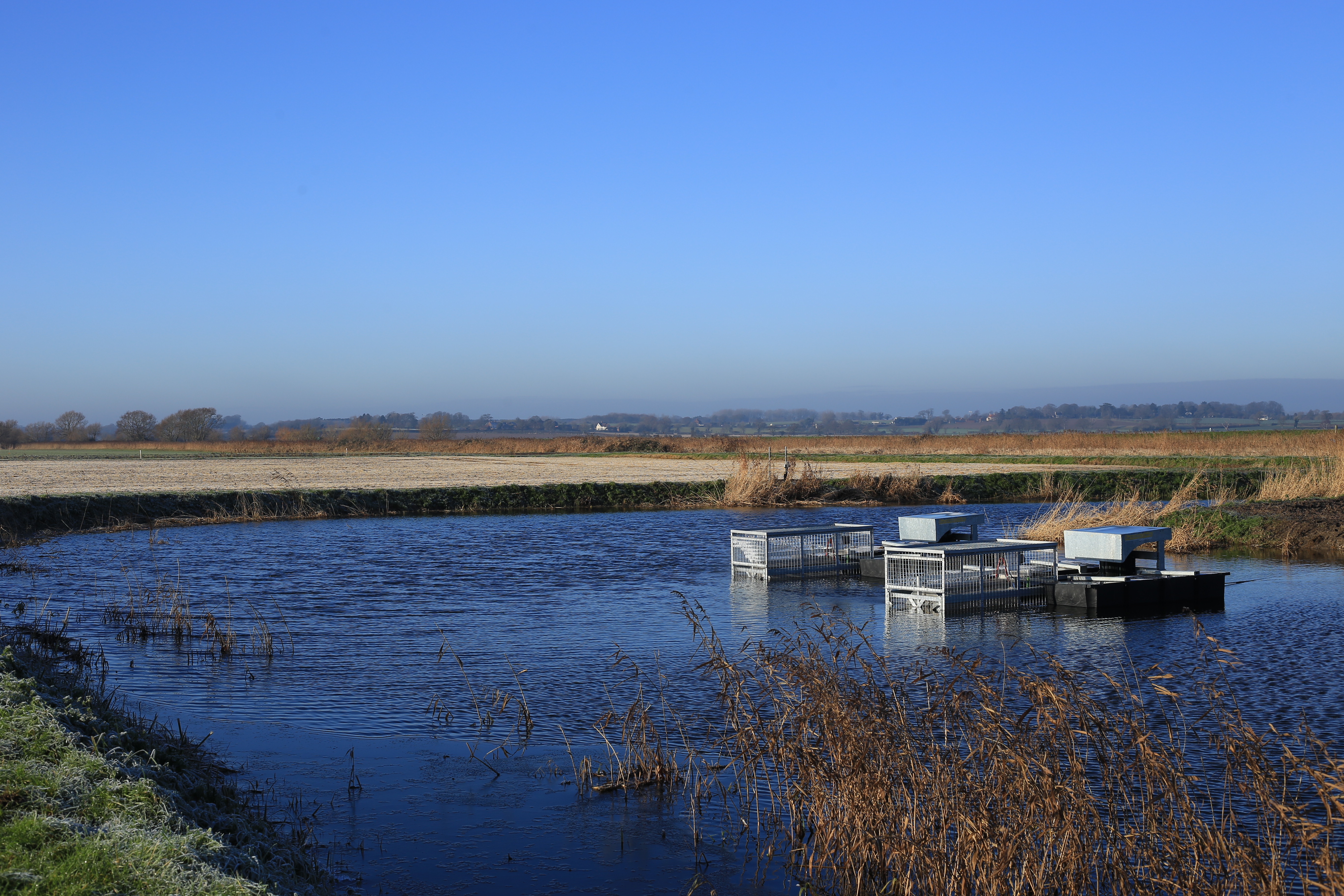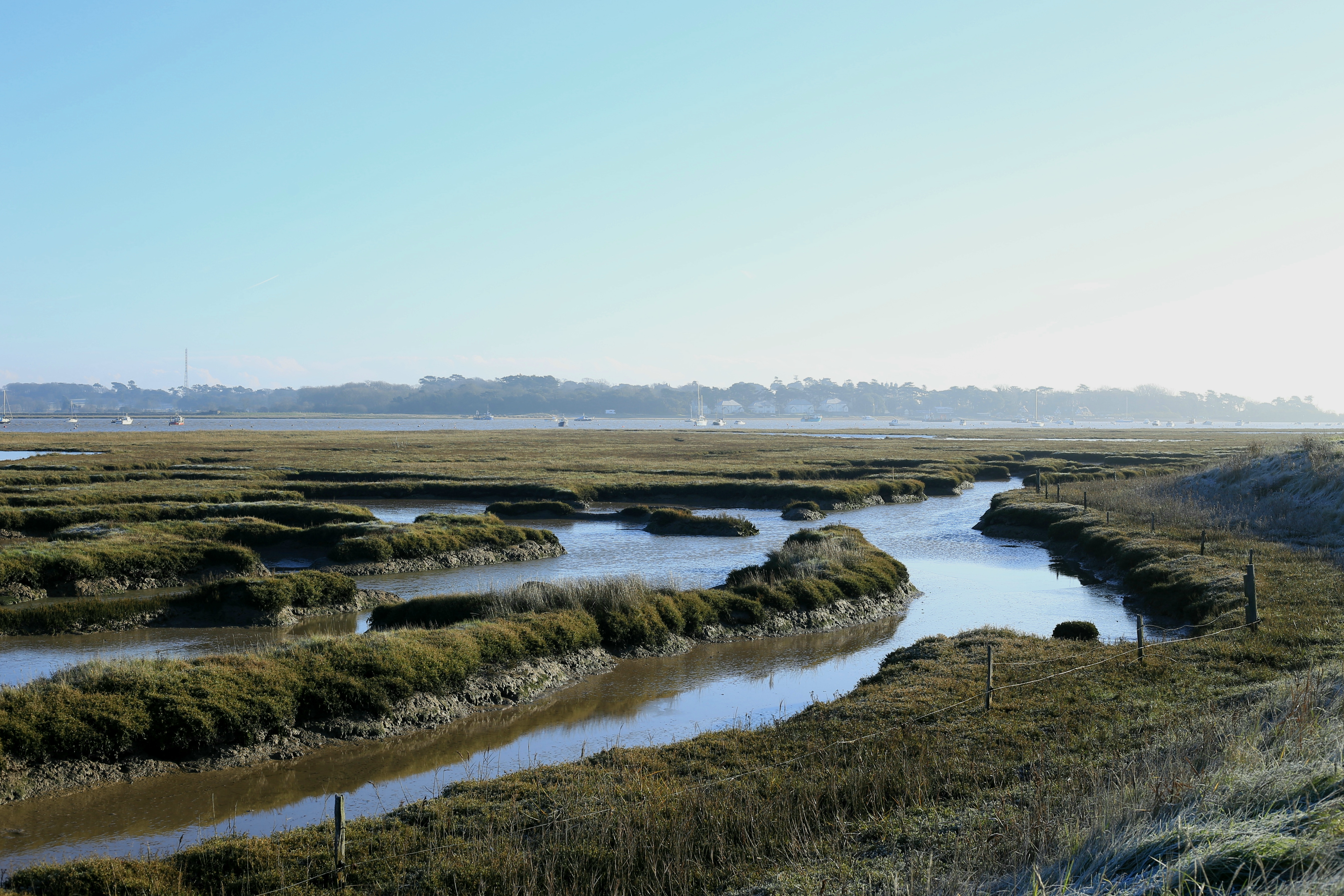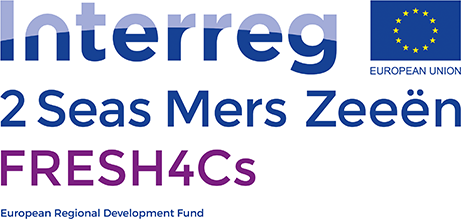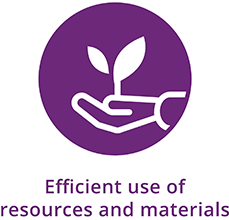Suffolk case to save up to 600,000 tonnes of water each year
The Suffolk case is taking big leaps - the installation is now fully operational and pumping. The innovations put in practice can save up to 600,000 tonnes of water each year; the succesful installation has received much media attention.
Each year, hundreds of thousands of tonnes of drainage water which fills land near the Suffolk’s River Deben's estuary is pumped away. This pumping process can also damage precious saltmarsh and mudflats, which are important habitats and part of the local ecosystem.
But now, the majority of this water is being carefully pumped inland thanks to an innovative project being led locally by Suffolk County Council, Felixstowe Hydrocycle Ltd, the Environment Agency and University of East Anglia.
The water is being reused by local farmers to irrigate food growing on their land and, in the future, can potentially be used in the public water supply.
In the East of England, new ways to source water are necessary because there is a growing demand for more and more water. This is due to future pressures from climate change, the need to supply demand from housing growth, industrial use and agriculture. But with this growing demand, our natural habitats must remain respected and protected.


John Patrick, Managing Director of Felixstowe Hydrocycle Ltd, said:
“Felixstowe Hydrocycle was formed by local farmers in 2018, as we had to find a more sustainable way of getting water to use on our land. Agriculture has a huge demand for water, particularly in this part of the world, and if water continues to be taken from existing sources, we could see a shortfall in supply within just six years.
So we have helped develop and install a new pipeline, pumping and storage system, which stops that drainage water damaging local habitats, stops that water being wasted and puts it to good use. We’re extremely proud to be a local business working on a project which is taking place on our doorstep, and that has the potential to positively impact water management across East Anglia and Europe, by making it more sustainable.”
The drainage water is sourced from the Kingsfleet near Felixstowe and travels along a 12km pipeline to local farms where it is stored in existing reservoirs ready for irrigation. The pipeline route has been carefully plotted to avoid areas of conservation and archaeological sites.
Councillor Richard Rout, Suffolk County Council’s Cabinet Member for Environment and Public Protection said:
"This project is an example of the council’s ambition to respond to the climate emergency we declared in March 2019.
There is a contradiction that we drain this water off our land out into the sea, whilst we experience both droughts and floods. I’m proud that we are pioneering innovative projects like this in Suffolk, which will make water supplies more sustainable, whilst also protecting our natural environment. This is part of the council’s Holistic Water Management Project, which I hope inspires other authorities to follow our lead.”
Jonathan Thompson, Groundwater and Contaminated Land Team Leader at the Environment Agency said:
“The scheme near Felixstowe is a fantastic example of how different groups working together can create truly innovative solutions to environmental challenges. It is the culmination of six years’ work to re-route this water to local farmers, which is benefitting both the local economy and the environment – preventing the erosion of protected salt marsh areas which are a haven for wildlife.
“Protecting our water resources for the environment, agriculture, industry and public use is one of the biggest challenges we face. Climate change and population growth mean that if we don’t take action now, in around 25 years water demand will exceed availability in many areas.”
The Felixstowe scheme is one of only four being trialled across Europe, overseen by FRESH4Cs, a cooperation project between 10 UK, Belgian and Dutch partners. FRESH4Cs has received funding from the Interreg 2 Seas programme 2014-2020 co-funded by the European Regional Development Fund.
Bastiaan Notebaert, water innovator at the Belgian organisation Vlakwa, and FRESH4Cs lead partner, said:
“This project has the potential to change the way we use our freshwater supplies and will particularly benefit farmers and their communities. We aim to provide sustainable freshwater supplies to coastal areas across Europe by trialling schemes, such as this one in Felixstowe. I’d like to thank all the partners in Suffolk for embracing this innovation and being part of something ground-breaking for our natural environment and for future generations.”
Media attention
The big leaps in the Suffolk case didn't go unnoticed
East Suffolk Catchment Partnership Winter Newsletter
The story was picked up by the Essex and Suffolk Rivers Trust newsletter.
East Anglian Daily Times
The story was picked up by the local Daily Times newspaper, both online and in print
(Jan 30th).
BBC Radio Suffolk
John Patrick from Felixtowe Hydrocycle Ltd. was interviewed about the FRESH4cs project in the Sarah Lilley show on Saturday 6th February 2021.


